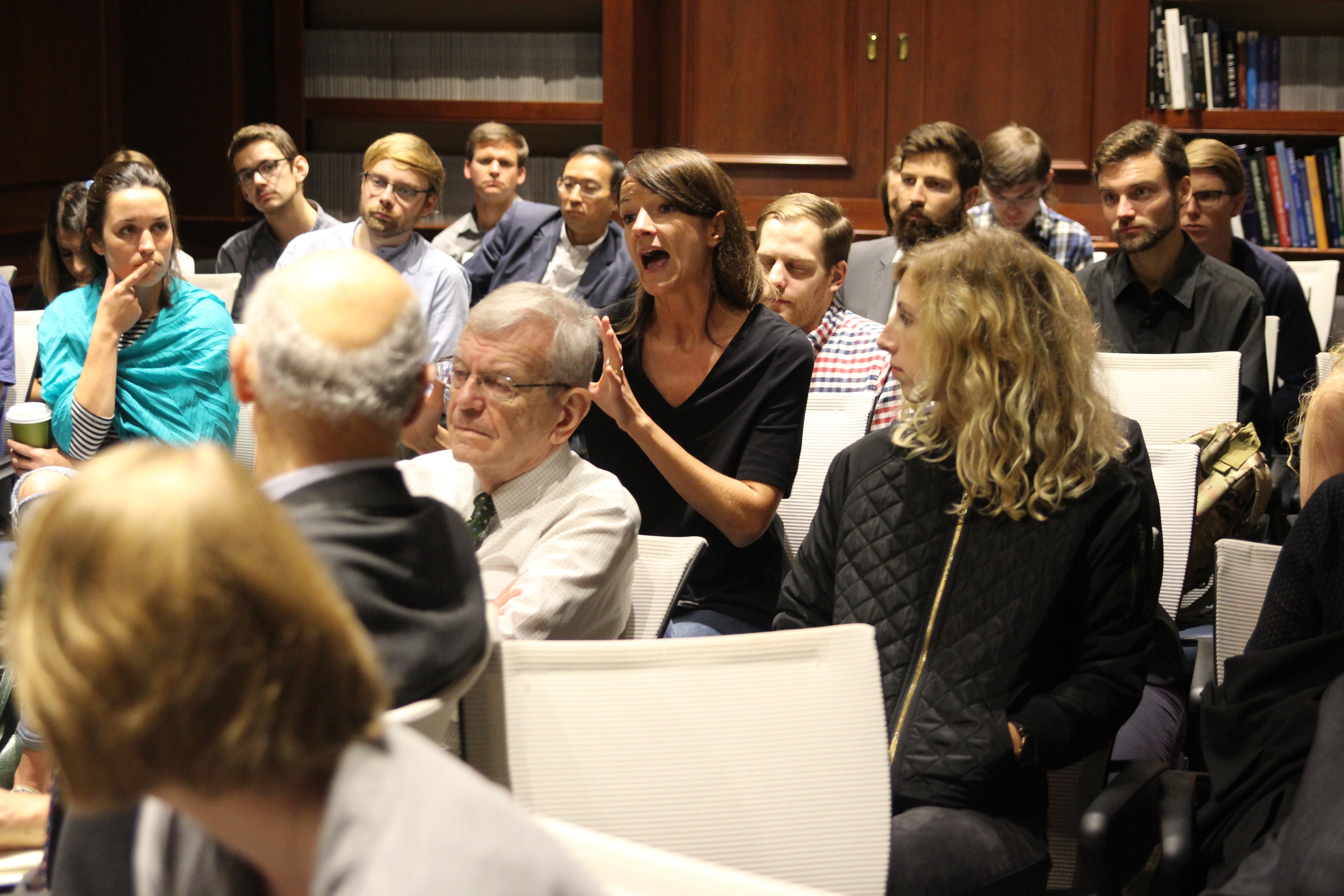
On Tuesday, October 3, 2017, the BMW Center for German and European Studies hosted a panel discussion on the results of the German Bundestag Election held on September 24, 2017. Each of the five panelists shared their thoughts on the recent election, starting with the struggle that many Germans are still going through to understand the outcome. According to Dr. Georg Schütte, State Secretary at the Federal Ministry of Education and Research, “There is a lot of attempt[s] in German media and the German political science community to come to terms with…this movement of voters away from established parties… towards the political fringes, why and how this has happened.”
How, in part, refers to the surprising win of 13% in the recent election by the Alternative for Germany (AFD), Germany’s own far-right nationalist political party. “All they needed was 5% to make it into the German parliament. That was already going to be a big deal…but really it’s the first time you have, in Germany, since the war, a far-right voice in parliament,” stated Christopher Cermak, Editor at the Handelsblatt Global Edition.
With the addition of the AFD to the German Bundestag, discussion of coalition-forming between parties has come to the forefront of German politics. Most notable of these is the Jamaica Coalition, known as Jamaica for the various colors of the parties involved, that would bring together the Greens, Liberal Free Democrats, and the Christian Democratic Union/Christian Social Union. “All of these parties have a huge amount of differences, and they are differences on very arguable fundamental things…,” asserted Cermak. Dr. Jeffrey Anderson, Director and Graf Goltz Professor at the BMW Center for German and European Studies, emphasized the high stakes facing Germany, adding, “I think all of the coalition partners will understand, if they don’t right now, Merkel certainly does, that success at the European level in some capacity, to some measure, is vital for Europe.”
“There are reasons to think that this particular Jamaica coalition, if that’s what we’re gonna refer to it as, can work.” – Dr. Jackson Janes, President, American Institute for Contemporary German Studies, Johns Hopkins University
Regardless of the AFD’s gain and the challenge of uniting many political parties into one coalition, optimism remains high. Minister Holger Mahnicke, Head of Culture and Communications at the Embassy of the Federal Republic of Germany in Washington D.C., forecasted, “On the average, I would argue that in German history, after World War 2, we have seen a continuity of German foreign policy. And I would like to predict simply, and this is something I am quite sure about, that we will have continuity as well with any given new coalition.”
The panel was moderated by Dr. Jonathan Olsen, Professor and Chair in the Department of History and Government at Texas Women’s University. Dr. Rosmarie Morewedge, Associate Professor of German at Binghamton University, introduced the panelists.


